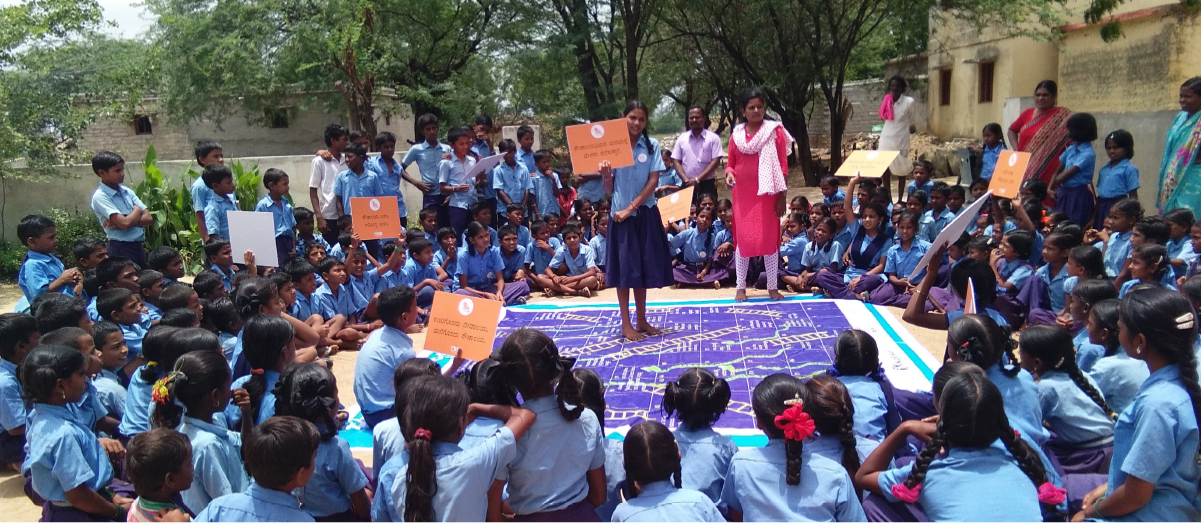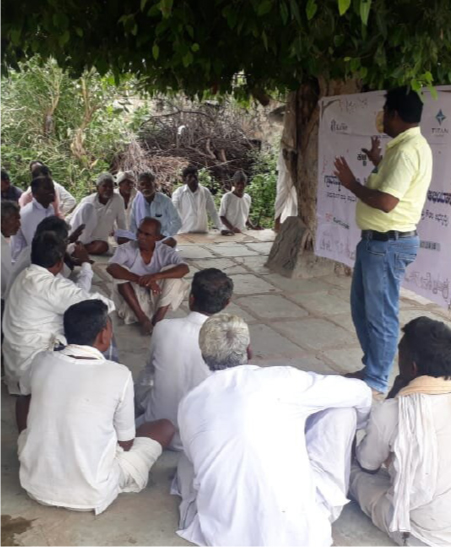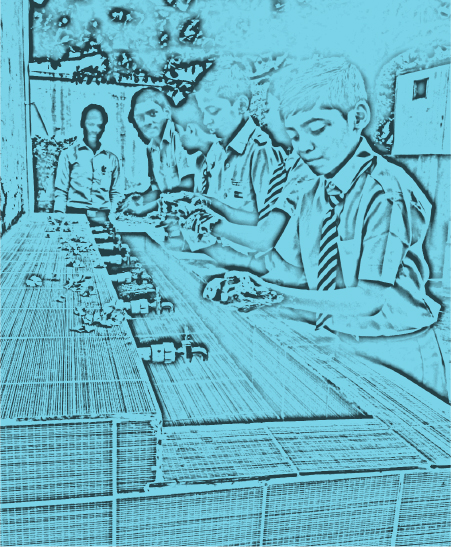WaSH - Programme

Yadgir ranks low on health indicators. Being drought prone, its source of water is contaminated with nitrates and fluorides, rendering it unfit for consumption. People who live here have little choice but to rely on alternate sources to meet daily needs. What further exacerbates the issue is the fact that only 11% of households have toilets. Since 2016, Tata Water Mission has been an active force in 40 Gram Panchayats, covering 156 villages. The objectives of the programme are the provision of safe drinking water and improved health by reducing water-borne illness, also to create an Open Defecation Free (ODF) society, a hygienic living and working environment.
Poor hygiene habits are linked to increased occurrences of illness and absenteeism. We implemented WaSH through village-level institutions like Water and Sanitation Committee and School Development Monitoring Committees (SDMCs) and evolve communication strategies that influence good behaviour.
Regular monitoring and impact assessments revealed that the children are able to remember important messages, infrastructure is well-maintained over the years. The School Health and Sanitation Committees (SHSCs) formed in 60 schools that worked on sanitation infrastructure and developed Solid and Liquid Waste Management (SLWM) detailed action plans in two villages in consultation with the respective Gram Panchayats. The Menstrual Hygiene and Management (MHM) initiative raised awareness on menstrual hygiene with a focus on busting myths.
Yadgir strives to be ODF Zone
 Yadgir enjoys the status of being an ODF (Open Defecation Free) Zone. We conducted a verification survey covering 5,081 households and a population of 30,300 on the subject. It revealed a dire situation, attributed to a collectively orthodox mindset and age-old practices that hinder progress rather than a lack of access to facilities or substandard infrastructure.
Yadgir enjoys the status of being an ODF (Open Defecation Free) Zone. We conducted a verification survey covering 5,081 households and a population of 30,300 on the subject. It revealed a dire situation, attributed to a collectively orthodox mindset and age-old practices that hinder progress rather than a lack of access to facilities or substandard infrastructure.
Subsequently, we held a two-day workshop, facilitated by Feedback Foundation, to capacitate necessary stakeholders toward action, a platform to draw a roadmap and work towards addressing the issue. Further, water quality testing was done across 156 villages on 9 basic parameters assessing potable drinking water. Contaminants, including bacterial ones, were found across 150 villages before, after and during the monsoon months.
Our biggest achievement was the fact that we successfully catalysed a behaviour change in the community
Best Practices
- Children are the best agents of change, to spread the message far and wide
- Girls are switching to eco-friendly menstrual hygiene products
- Taboos concerning menstruation are weakening resulting in the establishment of healthy social and cultural practices concerning menstruation
Case Study
 With dismal hygiene infrastructure, the majority of school-going children in Yadgir grow up without basic facilities leading them to health issues and unsafe practices with regard to their body. Often, bad hygiene has resounding effects beyond health and has been known to lead to low attendance and increased dropout rates. Eleven year old Bhagyashree studying in the government primary school of Lingeri Station was asked about what changes she has observed as a recipient of the WaSH intervention. Previously unaware of the importance of hygiene, she says that after she learned good practices, she compelled her parents to install a toilet at home. They no longer defecate in the open, resulting in considerable improvement in their health.
With dismal hygiene infrastructure, the majority of school-going children in Yadgir grow up without basic facilities leading them to health issues and unsafe practices with regard to their body. Often, bad hygiene has resounding effects beyond health and has been known to lead to low attendance and increased dropout rates. Eleven year old Bhagyashree studying in the government primary school of Lingeri Station was asked about what changes she has observed as a recipient of the WaSH intervention. Previously unaware of the importance of hygiene, she says that after she learned good practices, she compelled her parents to install a toilet at home. They no longer defecate in the open, resulting in considerable improvement in their health.
Bhagyashree promises that she will do her best to spread the programme to other children through fun games and activities. Dashrath, from 6th standard in the same school, has also convinced his parents to install a toilet and makes a commitment to spreading the good news to subsequent batches in his school. As is evidenced by both Bhagyashree and Dashrath, children are the most powerful agents of change.
